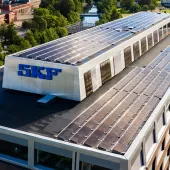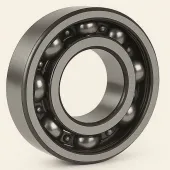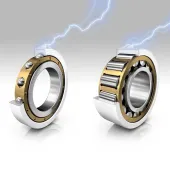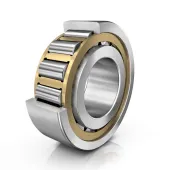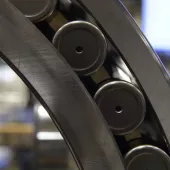Reconditioning Large Rolling Bearings
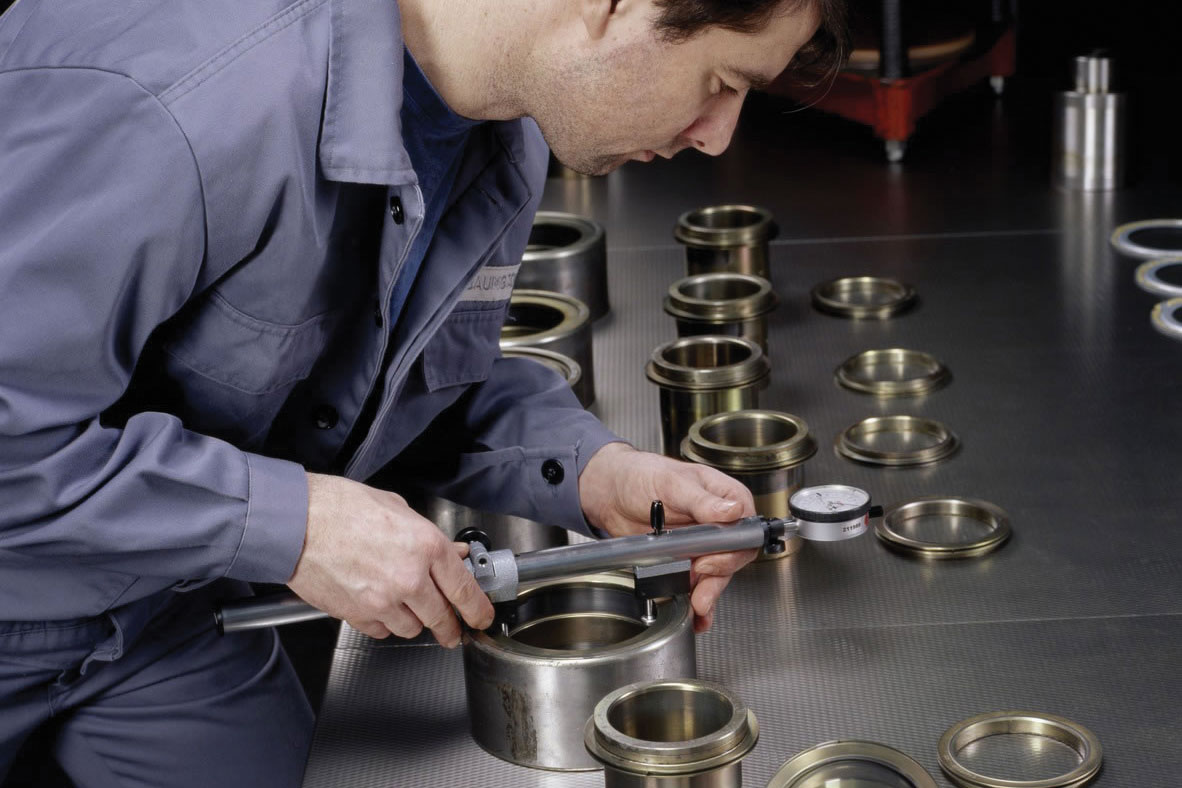
First published in the April 2018 issue of Quarry Management as Bearing Reconditioning
By reconditioning large rolling bearings rather than direct replacement, companies can save time and money while ensuring that the bearings are restored to an acceptable, functionally reliable condition, says Dave Wall, senior applications engineer at Schaeffler UK.
The characteristics and condition of rolling bearings have a significant influence on the overall availability of plant and machinery. However, many rolling bearings are still dismounted and replaced as part of a company’s routine maintenance activities, particularly on machinery that is deemed critical to the production process.
In many cases though, bearings can be restored to a completely acceptable, functionally reliable condition using appropriate cleaning and rework techniques. This is particularly true if the bearings are large, where reconditioning or rework can often save valuable time and money.
Reconditioning can offer significant advantages in applications such as mining and quarrying, where large rolling bearings often play a critical role in keeping high-value production plant, machines and vehicles operating continuously and efficiently around the clock.
When considering reconditioning of rolling bearings, it is not always necessary to approach the original manufacturer of the bearing. Some bearing suppliers can provide reconditioning services for any bearing product, regardless of the manufacturer. If a good working relationship already exists with a particular bearing supplier, it is worth asking if they can recondition other suppliers’ bearings too.
Fraction of the cost
The reconditioning or maintenance costs of a large rolling bearing typically amount to between 15% and 70% of the cost of a new bearing, depending on the extent of the reconditioning work involved. Average costs are around 50% of new purchases.
In the UK, Schaeffler’s bearing reconditioning service normally involves an initial, free on-site inspection of the bearings to determine whether reconditioning is appropriate and possibly viable. This saves any unnecessary transportation and inspection costs being incurred by the customer.
An expert from a local Schaeffler technology centre in the UK will typically inspect the bearing damage on site and record this by taking photos, which can be sent to specialists at Schaeffler’s Wuppertal repair centre in Germany. A budget cost for reconditioning can then be provided to the customer, who can decide whether to proceed with an in-depth damage diagnosis and subsequent reconditioning work.
The initial on-site inspection allows Schaeffler to offer specialist advice and guidance to the customer on how the life of the bearings can be extended in the future, for example, by using advanced materials or coatings on certain bearing components. On-site visual inspection by trained, experienced engineers can also help to discover other factors that may be causing the bearings to wear prematurely, such as incorrect bearing mounting or inappropriate lubrication or loading conditions.
What does reconditioning actually involve?
Reconditioning can be applied to all types of rolling bearings, including back-up rollers, radial spherical roller bearings, cylindrical roller and tapered roller bearings.
The Schaeffler service centre in Wuppertal provides modern production and measurement facilities for the whole of Europe. If certain components cannot be repaired, they are completely replaced. Once the specialists at Wuppertal have carried out the appropriate processing, the repaired rolling bearings provide the same performance as new bearings.
Reconditioning consists of appropriate cleaning and disassembly of the bearing, the preparation of comprehensive examination reports, including appropriate repair recommendations and reconditioning proposals for various levels of reconditioning. These range from simple polishing repairs, through grinding and replacement of individual components, to the substitution of a complete inner or outer ring. Depending on the specific reconditioning levels required, the relevant predicted costs and the anticipated duration of repair are calculated.
Once the appropriate processing has been carried out, the reconditioned rolling bearings should provide the same performance as new bearings. In certain cases, and after careful assessment and damage diagnosis, the customer may even receive the same warranty as for a new bearing.
Other services
In addition to reconditioning, rolling bearings can also be modified. Examples include the provision of threaded holes, adjustment of bearing clearance or changes to the bore diameter.
Moreover, a rolling bearing from replacement parts stock that is no longer required can be adapted to suit a different purpose. This saves time, material and cost, while still providing the customer with a rolling bearing that is of new quality.
Coatings can also be applied in order to improve the characteristics of bearing components. A coating can prevent corrosion, reduce wear or contribute to energy efficiency by decreasing friction.
If damage is discovered during examination of the rolling bearing, a request can be submitted for detailed examination and assessment of this damage. The results can be recorded in an assessment report. This means a statistical evaluation of possible defect sources can be carried out.
From an environmental perspective, a decision in favour of the reconditioning of rolling bearings allows manufacturing companies to make a considerable and ongoing contribution to reducing energy consumption and resources. In the case of defective components, Schaeffler ensure correct separation of materials according to grade. Moreover, all Schaeffler manufacturing plants and reconditioning locations are certified in accordance with the relevant environmental standards.
- Subscribe to Quarry Management, the monthly journal for the mineral products industry, to read articles before they appear on Agg-Net.com


